Karate Organizations
Karate is divided into style organizations. These organizations sometimes cooperate in non-style specific sport karate organizations or federations. The World Karate Federation (WKF) is the largest sport karate organization and is recognized by the International Olympic Committee (IOC) as being responsible for karate competition in the Olympic Games.
Asian Karatedo Federation (AKF)
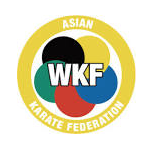
The AKF is a non-profit organization and performs its activities on an amateur basis in compliance with the principles set forth in the Olympic Charter, duly recognized by the World Karate Federation, the largest international governing body of sport karate with over 180 member countries. It is the only karate organization recognised by the International Olympic Committee and has more than fifty million members. The AKF organizes the Asian Karatedo Championships, the Junior and Senior AKF Championships in every two years in between the Olympic and Asian Games and participates in WKF World Karate Championships.
Australian Karate Federation (AKF)
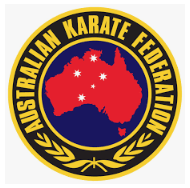
Soon after the Australian Karate Federation was established in 1970, the National team represented Australia in the inaugural World Karate Championships staged in Japan the same year. The federation after a humble start achieved a substantial number of members and kept on growing with an impressive membership of 123 affiliated styles. The federation in its initial years was headed by Don Cameron MP as President. The federation in its early years thrived under the able and strong leadership of Don, who initiated the first two National Teams and also paving a way for further development of the sport in Australia.
European Karate Federation (EKF)
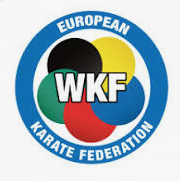
In 1961, Jacques Delcourt was appointed President of French Karate, which was at that stage an associated member of the Judo Federation. In 1963 he invited the six other known European federations (Italy, Great Britain, Belgium, Germany, Switzerland and Spain) to come to France for the first-ever international karate event, and Great Britain and Belgium accepted the invitation. In December of that year, six of the seven federations gathered in Paris, in what was to be the first European Karate Congress, with the aim of improving and organizing karate tournaments between their countries. It was noted that the unification of the different karate styles was impossible, and so they decided to unify the refereeing.
Genseiryū Karate-do International Federation (GKIF)
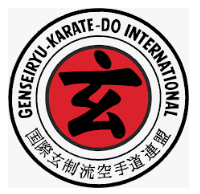
The Genseiryū Karate-do International Federation (GKIF) (国際玄制流空手道連盟), Butokukai Branch (武徳会支部) was established in 1959 by Kunihiko Tosa and junior co-worker Yohimitsu Furuya who both were part of the first dojo ever established by Seiken Shukumine at the Tachikawa Self Defense Forces. Around 1950, Kunihiko Tosa joined the Japanese Self-Defense Forces. During the years of the JSDF, Kunihiko Tosa met the founder of Genseiryū, Seiken Shukumine, for the first time. The Genseiryū Karate-do International Federation has about 150 dojos worldwide, but most of them are in Japan.
International Okinawan Gōjū-ryū Karate-dō Federation (IOGKF)
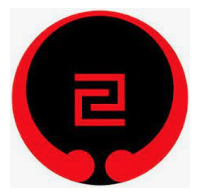
Also known as the International Federation of Karate-do Goju-ryu Okinawa, is an international martial art organization covering Gōjū-ryū karate. It was founded by Morio Higaonna (b. 1938) in July 1979. Higaonna is the founder and Chairman of the IOGKF International. The IOGKF is responsible for spreading the original Gōjū-ryū karate style of Okinawa throughout the world, following the teachings of Chojun Miyagi. In 2003, the IOGKF was estimated to have around 50,000 members in 45 countries.
International Shotokan Karate Federation (ISKF)
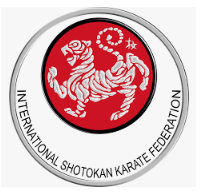
Is the largest shotokan karate organization in North and South America. In 1977, in an effort to spread the study of shotokan throughout the world, high-ranking members from the Japan Karate Association (JKA) founded the ISKF. In 2007, the ISKF split off from the JKA to become an independent organization. Members of the ISKF follow the teachings of shotokan's founder, Gichin Funakoshi. Though the ISKF is based mainly in the United States, affiliated dojos can be found in over forty countries worldwide. Teruyuki Okazaki (1931–present) is the chairman and chief instructor of the ISKF.
International Sport Karate Association (ISKA)
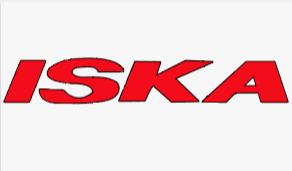
Is one of the major international bodies regulating karate and kickboxing matches, and is based in the United States. It was established in 1985 as a response to legal and revenue issues that sent the Professional Karate Association (PKA) into decline. From 1974 until 1985, the PKA had been the most recognised worldwide kickboxing sanctioning group. It was instrumental in establishing public relay of the sport via ESPN, helping to introduce the burgeoning sport to a wider audience, and had also developed the first fighter's ratings systems. Five major U.S.-based promoters and resigning PKA executives created the new body, the International Sport Karate Association (ISKA), with an official announcement on July 16, 1986.
International Traditional Karate Federation (ITKF)
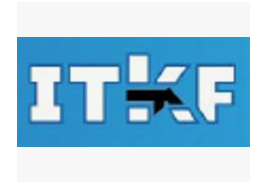
Known in Japanese as Kokusai Dentō Karate Renmei. This organization was founded by Hidetaka Nishiyama. In the early 1990s, Nishiyama's refusal to align his ITKF organization with the World Union of Karate-Do Organizations (WUKO) caused the International Olympic Committee to suspend its recognition of WUKO as amateur karate's international governing body. The ITKF and WUKO had been due to merge and form a unified karate organization, but this did not eventuate. The WUKO eventually became the World Union of Karate-Do Federations in late 2008.
Japan Karate Association (JKA)
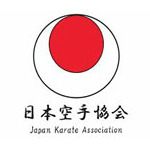
Japan Karate Association (日本 空手 協会; Nihon Karate Kyokai; JKA; sometimes referred to simply as Kyokai 協会 in Japan) is one of the most influential Shotokan karate organizations in the world. It is also one of the oldest karate organizations continuously in operation until the present. Gichin Funakoshi played a major role in introducing karate from Okinawa to Japan, adjusted to reduce injury and merged with approaches for athletic training. The JKA emerged from karate clubs at Japanese universities located in the Tokyo region. Most of these universities, however, distanced themselves from the JKA during the 1950s.
Japan Karate Federation (JKF)
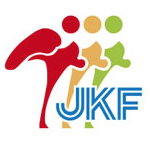
It was originally called the Federation of All Japan Karatedo Organizations (FAJKO) and is affiliated with the World Karate Federation (WKF). The Japan Karate Federation recognizes Wadōkai, Shotokan (Japan Karate Association), Shito-ryu and Goju-ryu. Traditionally, different organizations with the world of Japanese karate have followed different rules of competition. The Japan Karate Association attempts to standardize rules of competition between these factions. This includes addressing conflicts between the factions that follow Kyokushin, full-contact karate. Factions that support, Kum, the flow of Kyokushin, or full contact karate such as (Seidokaikan, etc.) are not members of JKF.
Japan Karate-Do Ryobu-Kai (JKR)
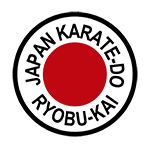
The style of karate taught by the JKR is Shindo Jinen Ryu, which was established by Yasuhiro Konishi, who studied under and alongside Gichin Funakoshi, Chojun Miyagi, Kenwa Mabuni, and Choki Motobu. Konishi also trained extensively under the founder of Aikido, Morihei Ueshiba, and JKR's lineage dates back to the 16th century traditions of Takenouchi-ryū Jujitsu. Japan Karate-Do Ryobu-Kai is the sole governing body for Shindo Jinen Ryu, and it is the only major karate organization that has never experienced an internal schism. Training within Japan Karate-Do Ryobu-Kai stresses traditional Japanese values of discipline, consistent attendance, etiquette, and hard work. Shindo Jinen Ryu incorporates elements of karate, aikido, jujitsu, and kendo in its curriculum, and also emphasizes both philosophy and education.
Japan Shotokan Karate Association (JSKA)
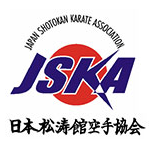
Abe is a former instructor graduate of the Japan Karate Association and trained and taught at the JKA Headquarters for nearly 35 years. He held a number of senior positions within the JKA and latterly the Matsuno section of the JKA. He had been a senior student of Nakayama and as such the teachings of Nakayama remain an integral part of the evolution of the Shotokan style within the JSKA. Abe is quoted as saying "I feel however that Karate nowadays is centered only on winning competitions and that everybody trains towards this end. This is far from the truth. I believe that the true purpose of Karate lies in daily training with a goal to develop a strong mind and body and furthermore to contribute to society in general." Abe established the JSKA to realize what he himself saw as the true Karate purpose.
JKA England (JKAE)
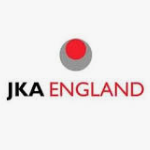
JKAE was officially formed in 2003 by several clubs from KUGB. Following the death of Enoeda, formerly chief representative of JKA in the UK and head of KUGB, there was a disagreement between the JKA, the KUGB, Andy Sherry (the next highest ranked instructor) and Yoshinobu Ohta (Enoeda's assistant). The result was that JKAE was formed with Ohta as chief instructor and the KUGB withdrew from the JKA with Andy Sherry as their chief instructor. Some KUGB clubs transferred to JKAE to form the new association, they possibly wanted to remain affiliated to the JKA or perhaps had a stronger sense of loyalty to Ohta. The division had a strong geographic correlation: most northern clubs chose KUGB and most southern clubs chose JKAE.
Karate Canada, National Karate Association (NKA)
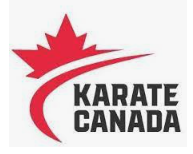
Is the national association representing the sport of karate in Canada. Formerly the National Karate Association (NKA) of Canada, the organization was founded by Masami Tsuruoka. In 1964, Masami Tsuruoka and four other karate instructors incorporated the association in the cities of Toronto, Winnipeg, Calgary, Montreal and Quebec City, and Tsuruoka was elected the first president of the organization. The NMA was organized to promote and develop the art of traditional karate in Canada into a respected sport and to provide a framework for Canadian competitors to gain international recognition.
Karate South Africa (KSA)
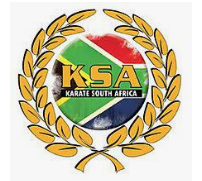
The KSA was formed in June 2005 after the previous body (KASA) was disbanded by the then Minister of Sport. The new body came into being under the supervision of the South African Sports Council. It has membership to the World Karate Federation (WKF) which is the only body recognised by the International Olympic Committee (IOC) and was readmitted to the international arena in 1992. In May 2008, after three years of ups and down, the interim structure was formalised at a General Elections held under the supervision of SASCOC and the current Executive was voted in. The President of the KSA is Leon Beech of and Elias Jacobs of serves as the Secretary General.
Karate Union of Great Britain (KUGB)
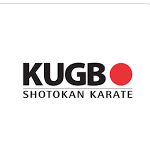
The 1960s saw a growth in the popularity of Karate, and the KUGB was founded in 1966 to be a democratic, not-for-profit organization, and was the first single style organization within the UK. Many other British Shotokan Karate organizations have since formed after splitting from the KUGB. The KUGB is currently affiliated to the European Shotokan Karate Association (ESKA) and the World Shotokan Karate Association (WSKA). It is the largest single-style karate association in the UK. The KUGB is organized on a regional basis, within England there are 3 regions, Southern, Central, and Northern, along with Wales, Scotland, Ireland, and Northern Ireland.
Panamerican Karate Federation (PKF)
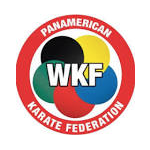
The PKF was founded in 1975 with original name PUKO (Panamerican Union of Karate Organization) with 13 countries founder the PUKO in Long Beach, California, USA, and in 1995 it officially change the name to Panamerican Karate Federation. PKF is duly recognized by the World Karate Federation, the largest international governing body of sport karate with over 130 member countries. It is the only karate organization recognised by the International Olympic Committee and has more than ten million members. The PKF organized juniors and seniors Championship in many countries in Panamerica and participates in WKF World Karate Championships. The President of the PKF is William Millerson.
Professional Karate Association (PKA)
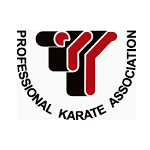
Originally a martial arts sanctioning organization, now transformed into a martial arts promotion company. Through the 1970s, the PKA was the major professional kickboxing organization in the United States and in Europe, featuring such fighters as Bill "Superfoot" Wallace. The PKA signed many fighters to exclusive contracts in order to build its brand in the sport, just as most other sports organizations sign athletes to exclusive contracts. Some fighters chose to go to other competing organizations, but the PKA was by far the most well known, as were its fighters.
Seigokan ( 正剛館 )
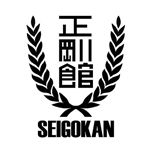
Is the Goju-Ryu Karate-do organization founded in 1945 by Seigo Tada (1922-1997) Hanshi (8th Dan). With its Hombu Dojo (headquarters) in Himeji, Japan, the Seigokan All Japan Karate-do Association (SAJKA) — its official name — has branches in Australia, Brazil, Canada, China (including Hong Kong and Macau), India, Italy, the Philippines, Portugal, Sri Lanka, the United States, England, Chile, Colombia and Venezuela. Master Seigo Tada was a pupil of Chojun Miyagi and the head of the Karate Club at Ritsumeikan University. In the 1960s, Seigokan was considered the most important Goju-Ryu Association (Kai-Ha) in Japan, with more than 200,000 members.
Shotokai ( 松濤會 )

Organization formed originally in 1930 by Gichin Funakoshi to teach and spread the art of karate. The organization still exists and promotes a style of karate that adheres to Funakoshi's teachings, in particular the notion that competition is contrary to the essence of karate. Nowadays, the name also designates a formal practice method. Shotokai is not an official style of karate. Shotokai is the name of the association launched by Gichin Funakoshi originally in 1930. The original name was Dai Nihon Karate-do Kenkyukai. The association is known in Japan as Dai Nihon Karate-do Shotokai since 1936. Shotokan is the name of its Honbu Dojo (main practicing hall). Gichin Funakoshi's karate style is also known as Shotokan ryu.
Shotokan Karate of America (SKA)
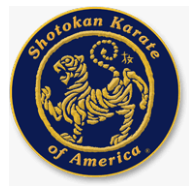
Non-profit organization whose mission is to teach traditional karate-do in the United States. It was founded and is still led by Tsutomu Ohshima, a direct student of Gichin Funakoshi, the father of Shotokan karate. Today, Ohshima is recognized as the shihan (chief instructor) of many other SKA-affiliated Shotokan organizations worldwide. SKA's national headquarters are in Los Angeles. One strict rule of Special Training is that no participant may leave until the Special Training is officially over; leaving early without permission of the chief instructor entails automatic expulsion from SKA.
Shotokan Karate-do International European Federation (S.K.I.E.F)
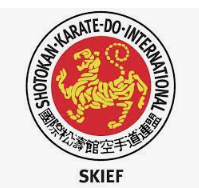
Is the European branch of the Shotokan Karate-do International Federation. The Chief Instructor of S.K.I.E.F is Hanshi Shirō Asano 9th Dan. As of January 2007, member countries affiliated to SKIEF are: Austria, Belgium, Denmark, France, Georgia, Germany, Greece, Greenland, Hungary, India, Ireland, Israel, Italy, Malta, the Netherlands, Portugal, Reunion Islands, Romania, Russia, Urals, Slovenia, Spain, Sweden, Switzerland, Uganda, Ukraine, United Kingdom and Yugoslavia. Hanshi Asano is also Chairman and Chief Instructor to Shotokan Karate-do International of Great Britain (SKIGB). SKIGB was the first national association to affiliate to the newly formed Shotokan Karate International (TOKYO) in October 1974.
Shotokan Karate-do International Federation (SKIF)
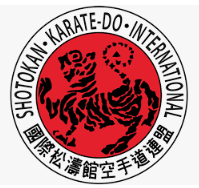
Is a shotokan karate organization, with in excess of two and a half million members worldwide, in one hundred and twenty countries. The Federation was founded by Hirokazu Kanazawa in 1978, after an acrimonious split with the Japan Karate Association. One year after forming the Shotokan Karate-do International Federation there were eight branches overseas and thirty in Japan. On October 12 1979, SKIF held its official inauguration at the Tokyo Kaiyo Kaikan. Two years after the inauguration, it held its first National Championships at Kitasato University. In 1983, the first SKIF World Championships were held in conjunction with the third National Championships at the Yoyogi Sports Centre.
Shotokan of England Karate Union (SEKU)
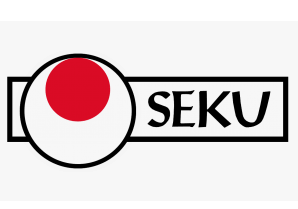
The Shotokan of England Karate Union was founded in 1982 by a group of clubs affiliated to the KUGB. Originally named the South of England Karate Union, a change to Shotokan of England Karate Union was necessary when northern English clubs joined. In 1984, due to the Unions growth, Mick Dewey invited his friend Dave Hazard to join as technical director of the SEKU. Brighton Shotokan was founded in June 1974 by Mick Dewey and Phil Elliott at the Sussex Sports Centre, Queens Square, Brighton. Phil Elliott stopped training around 1978/9 and Mick Dewey continued running the club then around 1980 he handed the responsibilities to club members Greg Wedekind, Will Davies, John Cave and Paul Bonnet, they continued running the club until the arrival of Dave Hazard.
United States Karate Association (USKA)
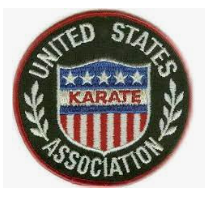
The first karate organization on the mainland United States, founded by Robert Trias in 1948. The USKA became one of the largest associations of karate instructors in the nation, and through this organization Trias was also instrumental in setting up and promoting some of the first karate tournaments in the US in 1955, as well as national and world-wide competitions. The USKA rules for tournament competition are still used today in the United States with only slight variation. At its height the USKA had more than a half-million members worldwide and conducted an annual national championship competition in the United States.
USA National Karate-do Federation
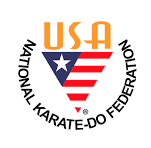
Is the national governing body (NGB) of karate for the United States Olympic Committee and as such is the official Member National Association (MNA) of the World Karate Federation (WKF) in the USA. The organization has complete authority over all decisions regarding U.S. national junior and senior team selections for World Karate Federation events. The tournaments that are held by the USA-NKF are big and nationwide and many famous martial artists attend the events. The USA Open is one of the largest international Black belt-only events in the world.
World Genseiryū Karatedō Federation (WGKF)

Instructors from several countries, including Denmark, the Netherlands, Spain, Finland and Japan, met in Oviedo, Spain in November, 2003, for purposes of establishing the World Genseiryū Karatedō Federation. At the end of the meeting, on November 14, the parties signed an agreement promising, among other things, to follow Seiken Shukumine's book Shin Karatedō Kyōhan (published 1964), which the WGKF considers the original Genseiryū, as a training guideline. Ten-i, Chi-i and Jin-i are considered by the WGKF to be among the basic and most essential kata of the organization's curriculum.
World Karate Federation (WKF)
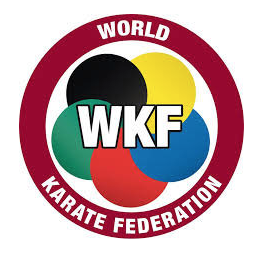
The World Karate Federation (WKF) is the largest international governing body of sport karate with over 130 member countries. It was formed in 1990 and is the only karate organization recognized by the International Olympic Committee and has more than ten million members. The WKF organizes the Junior and Senior Karate World Championships, which are each held every other year. The President of the WKF is Antonio Espinos, and the headquarters are located in Madrid, Spain. The styles recognised by the WKF are Gōjū-ryū, Shitō-ryū, Shotokan and Wadō-ryū.
World Karate Union (WKU)
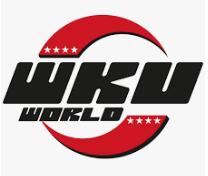
Hall Of Fame was established in 1996 as a means to honor martial artists for their unselfish contributions to the martial arts. While some names are more recognizable than others all are deserving of respect and acknowledgement. Nominees are selected through ballots which are sent throughout the United States, Europe, Russia, South America, Canada, the West Indies and Australia. The WKU Hall of Fame event is considered "prestigious" and is attended by many notable martial arts VIPs. The majority of inductees are recommended directly by the WKU Board Members and past inductees. The criteria are based on extraordinary excellence in the martial arts and tireless devotion to the community.
Yoshukai (養秀会) Karate
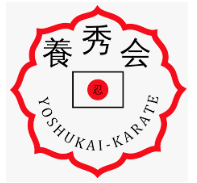
The three kanji that make up the word Yoshukai literally translated mean "Training Hall of Continued Improvement." However, the standardized English translation is "Striving for Excellence." Yoshukai Karate has been featured in Black Belt Magazine. The body of fighting and self-defense techniques which became Japanese Karate-do is thought to have originated about a thousand years ago in India and spread from there to China, Okinawa and finally to Japan in the early 1900s. Gichin Funakoshi (Funakoshi Gichin), founder of Shotokan karate, is considered to be most responsible for the systemization and introduction of karate to Japan. Afterward, many other masters emerged, including Tsuyoshi Chitose, who developed Chito-ryu karate from a combination of Shorin-ryu and Shorei-ryu karate styles.

RESOURCES
This article uses material from the Wikipedia articles "Karate", "Asian Karatedo Federation (AKF)", "Australian Karate Federation (AKF)", "European Karate Federation (EKF)", "Genseiryū Karate-do International Federation (GKIF)", "International Okinawan Gōjū-ryū Karate-dō Federation (IOGKF)", "International Shotokan Karate Federation (ISKF)", "International Sport Karate Association (ISKA)", "International Traditional Karate Federation (ITKF)", "Japan Karate Association (JKA)", "Japan Karate Federation (JKF)", "Japan Karate-Do Ryobu-Kai (JKR)", "Japan Shotokan Karate Association (JSKA)", "JKA England (JKAE)", "Karate Canada", "Karate South Africa (KSA)", "Karate Union of Great Britain (KUGB)", "Panamerican Karate Federation (PKF)", "Professional Karate Association (PKA)", "Seigokan (正剛館)", "Shotokai (松濤會)", "Shotokan Karate of America (SKA)", "Shotokan Karate-do International European Federation (S.K.I.E.F)", "Shotokan of England Karate Union (SEKU)", "United States Karate Association (USKA)", "USA National Karate-do Federation", "World Genseiryū Karatedō Federation (WGKF)", "Karate", "World Karate Union (WKU)", "Yoshukai_Karate", which is released under the Creative Commons Attribution-Share-Alike License 3.0.
© Karatedo Preschool. All Rights Reserved.